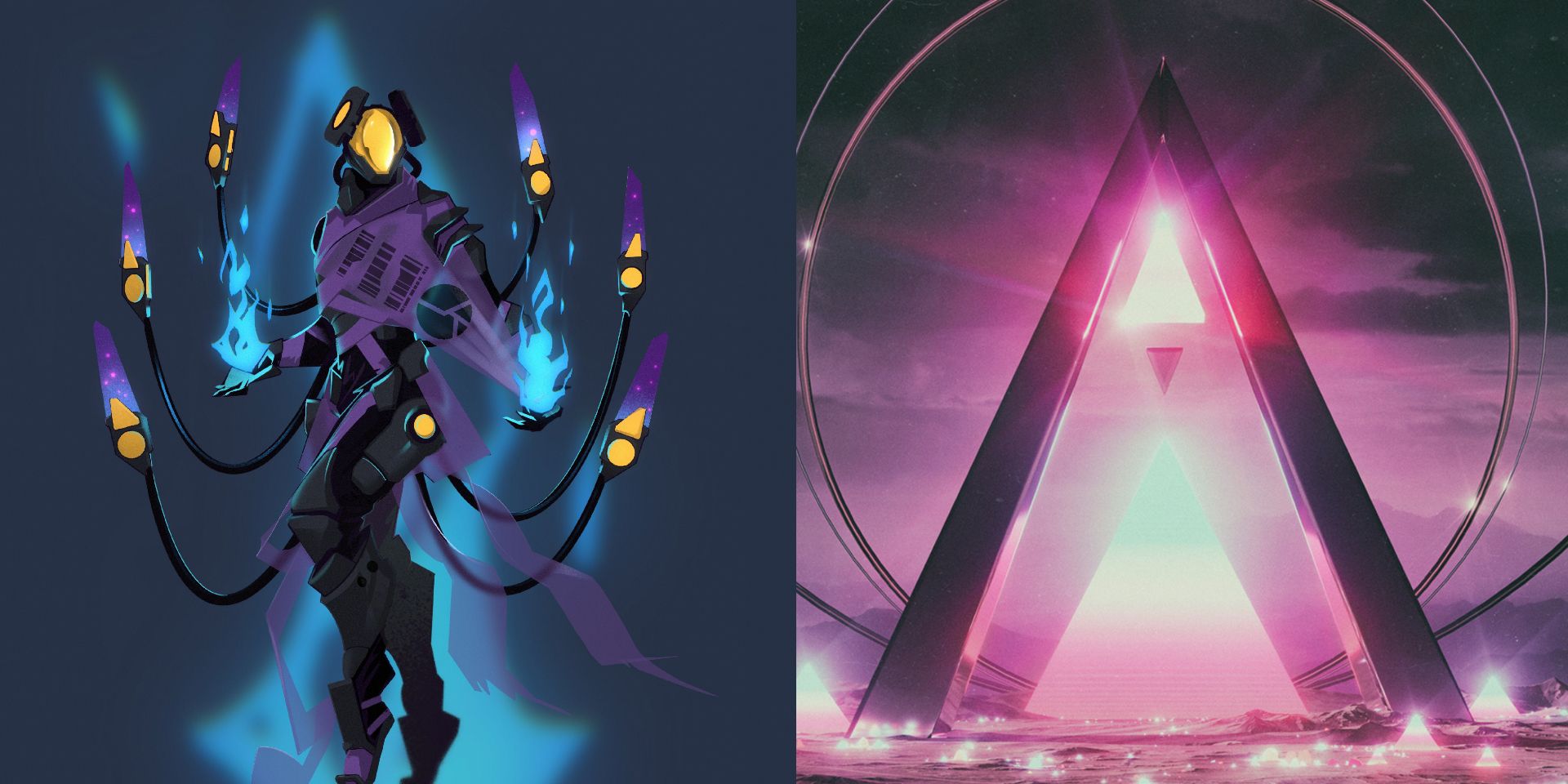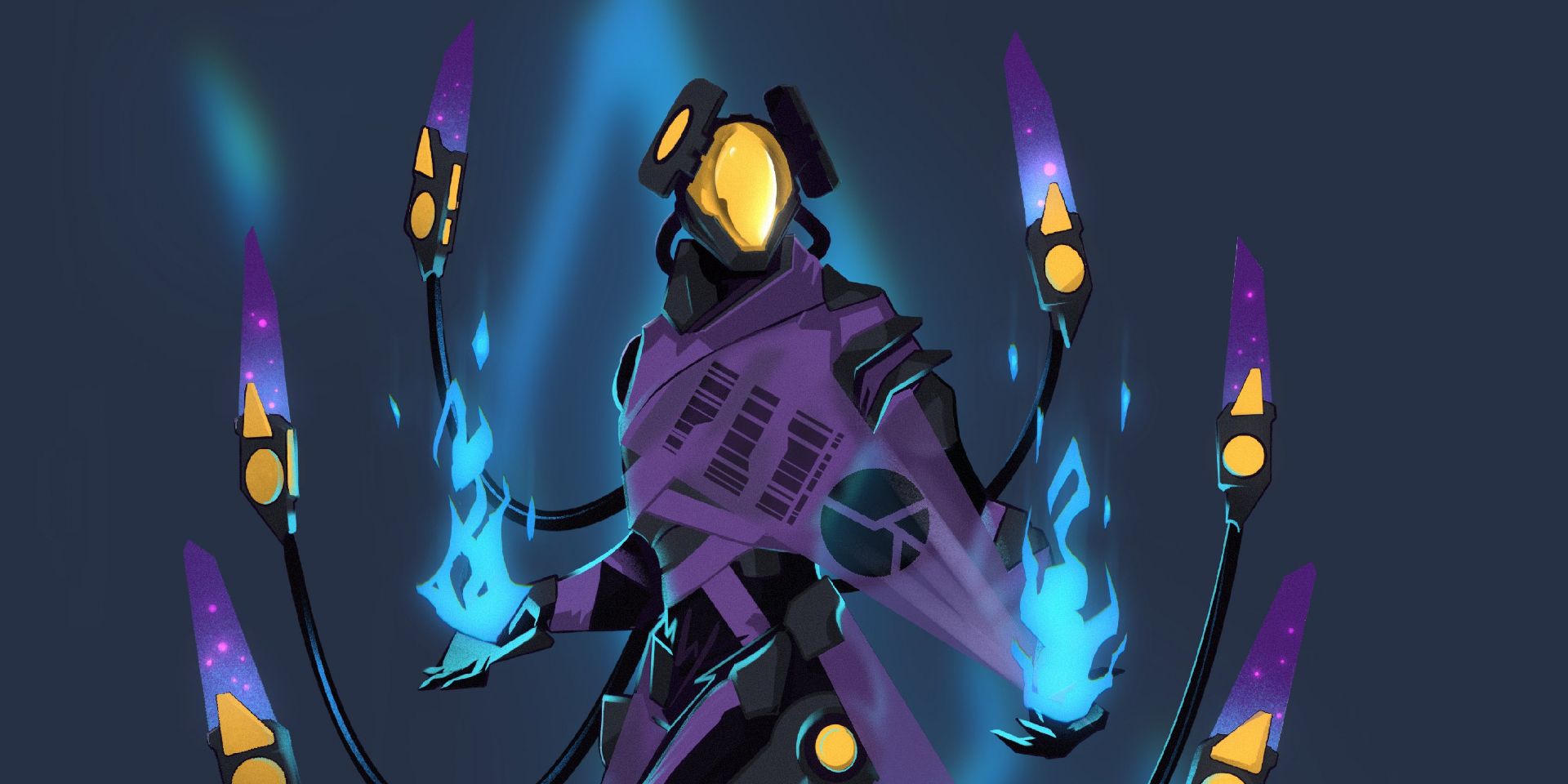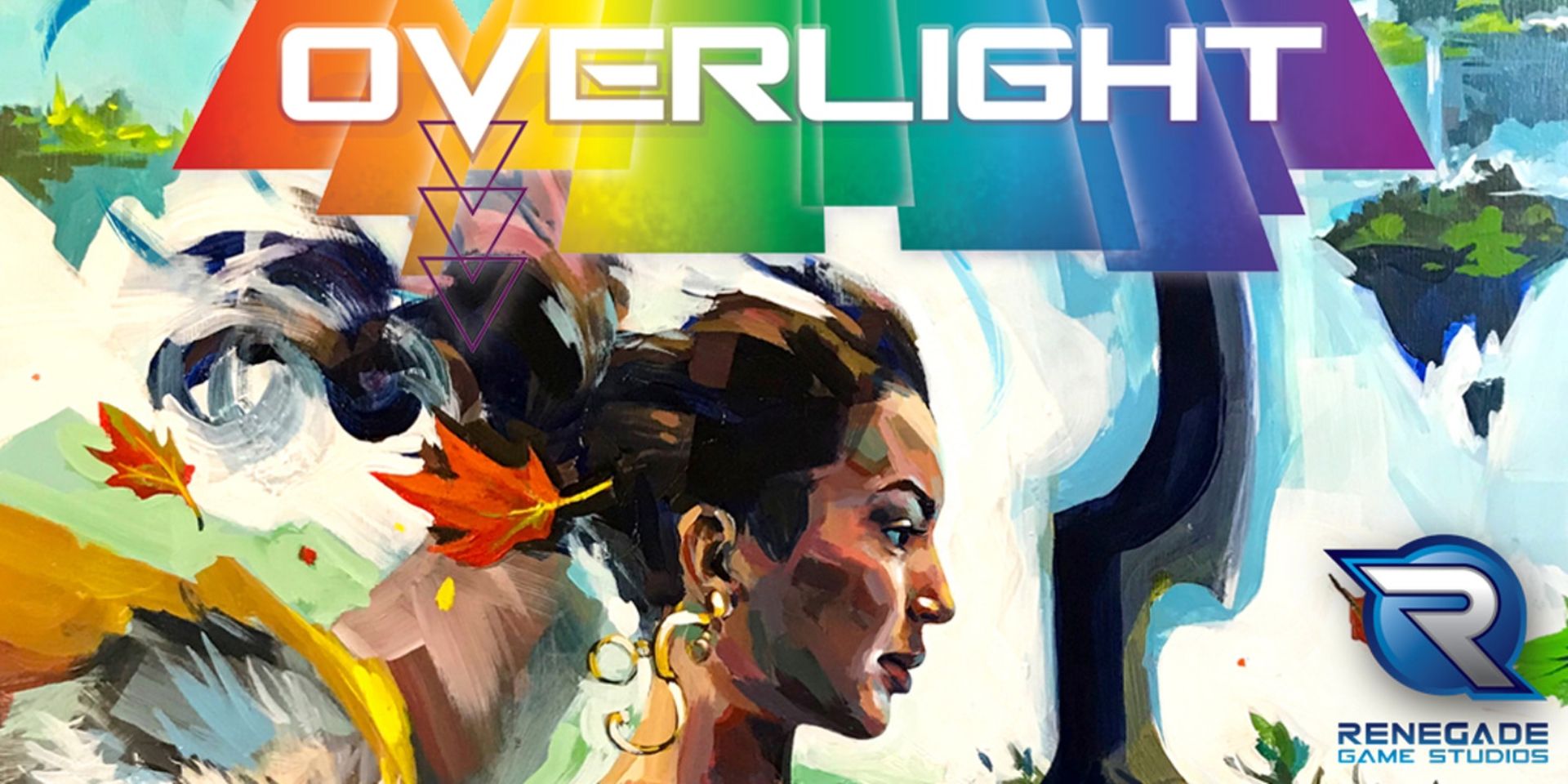Once, many ground-breaking video games were inspired by Dungeon & Dragons and other tabletop roleplaying games; nowadays, several indie developers have been drawing inspiration from Destiny, Warframe, and other video games in the "looter shooter" genre to define the gameplay and worlds of their original tabletop RPGs. Fans of looter shooters will enjoy the following science fantasy tabletop system, each possessing rules for running play sessions of fast-paced adventure and setting with quasi-magical technology, strange post-apocalyptic civilizations, and supernatural powers tied to light, darkness, and other hues.
Destiny and Warframe, two parallel multiplayer FPS games developed by Bungie Studios and Digital Extremes respectively, wound up popularizing both the gameplay of looter shooters and the post-apocalyptic science fantasy settings frequently seen in later games like Anthem or Outrider. In Destiny and Destiny 2, players take on the roles of immortal Guardians with power over Light who protect the Last City of humanity from hostile alien creatures and explore the ruins of a long-lost Golden Age among the worlds and moons of the Solar System. Warframe is also set in a post-apocalyptic far-future Solar System, but but players in the shoes of the Void-empowered Tenno, controllers of cyber-organic ninja suits who conduct missions of assassination and subterfuge among the remnant factions of a highly prosperous and incredibly oppressive empire.
The design-heavy indie tabletop RPGs listed below take place in the sort of science fantasy universes that Destiny and Warframe popularized – far-future settings where the survivors of a massive cataclysm claw their way back from the brink of extinction, finding hope and salvation in groups of heroes with uncanny powers blurring the line between science and magic. The gameplay rules in most of these tabletop RPGs also try to emulate the gameplay of these looter shooters, blending tactically exciting conflict systems with narrative storytelling rules and a diverse list of weapons/abilities players can acquire over the course of a campaign.
LIGHT Offers A Destiny-Style Tabletop RPG Adventure
LIGHT, a narrative sci-fi RPG designed by Spencer Campbell and available on itch.io, is very much a heartfelt homage to the Destiny game franchise. In LIGHT, players portray heroic champions called Beacons (non-copyright infringing versions of the Guardians from Destiny) who defend the last city on Earth from the forces of Dark. Like in Destiny, players characters in LIGHT who fall during combat can resurrect themselves to continue the fight – though only for a finite number of times before suffering their final death. The basic rules for LIGHT can fit on two sides of a pamphlet, while a number of downloadable "module" and "season pass" booklets give players extra abilities to play with and epic scenarios for GMs to run.
NOVA's Tabletop RPG Formula Takes Notes From Warframe
After publishing LIGHT, Spencer Campbell launched a Kickstarter for a stylistically similar RPG called FRAME, intended to be an homage to the setting and gameplay of Warframe. After canceling the FRAME Kickstarter in the wake of some ugly harassment from members of the Warframe fan community, Campbell was inspired to release a System Reference Document for the LUMEN roleplaying system he'd designed, then use the LUMEN rules to create a more elaborate and original RPG called NOVA, currently for sale on itch.io.
NOVA takes place in a distant future where the sun has exploded and the remains of humanity struggle to survive on an Earth shrouded in perpetual night and plagued with monsters; in this world, player characters pilot powerful exo-suits called "Sparks," a thematic hybrid between the Tenno Frames of Warframe and the combat robots of Mecha tabletop games. A gameplay session of NOVA revolves around players exploring the perpetual dusk of Earth for technology and secrets that can save humanity, simulating spectacular exosuit battles against enemies using a looter shooter inspired combat system where players spend "Fuel" to unleash powerful abilities, then replenish their fuel by gathering resources from their slain foes.
Overlight Is A Tabletop RPG For Fantasy Looter Shooter Fans
Compared to the other RPGs in this article, Overlight, published by Renegade Game Studios, has a more explicitly fantastical setting akin to the raw, now canceled world of Anthem. According to the Kickstarter page, Overlight takes place in a world of "Kaleidoscopic Fantasy" that was shattered and warped after humanity misused the power of the Keys of Creation. In the surreal reality of this RPG, Skyborn player characters adventure across seven floating continents suspended between an endless sea and endless sky, encountering colorful species and cultures who defy and subvert the conventions of traditional fantasy world-building. The rules for the Overlight RPG are narrative in nature but also structured, generating interesting consequences for players whenever they roll dice or use the quasi-magical powers called "Chroma" in interesting, risky ways.
The Brightest Things We Know Is A Destiny-Inspired RPG Using Forged In The Dark Rules
The Brightest Things We Know, a science-fantasy RPG by Briar Sovereign currently in early development, takes the same cues from Destiny as LIGHT, but uses the Forged In The Dark tabletop RPG ruleset to tell stories about a far-future group of exiles that reside in massive space-faring Foundry Ships, protected from empires alien and human by a group of elite warriors called "Stars." To create their "Star" PCs, players of The Brightest Things We Know choose from a selection of character Playbooks patterned after different Constellations in the Zodiac. The core gameplay loop of The Brightest Things We Know sessions alternates between "Strike" Phases where a "Cluster" of "Stars" complete missions and contend with the enemies of the Foundry Ships, and "Ship Phases" where PCs rest, recuperate, and cash in the resources/data they've acquired in order to gain new equipment and weapons.
The character arc of a PC in The Brightest Things We Know is tied to the theme of Memory; as a campaign progresses, a PC recalls more and more details of their former life before their death and resurrection as a "Star," losing access to their Witness-granted celestial powers if they remember too much. Thematically, The Brightest Things We Know is also a lot more anti-authoritarian in tone than the Destiny franchise, with the "Stars" using their powers to both protect the Foundry Ships from hostile aliens and overturn the authority of human empires and oligarchies.
Sources: itch.io - LIGHT, Kickstarter, itch.io - NOVA





